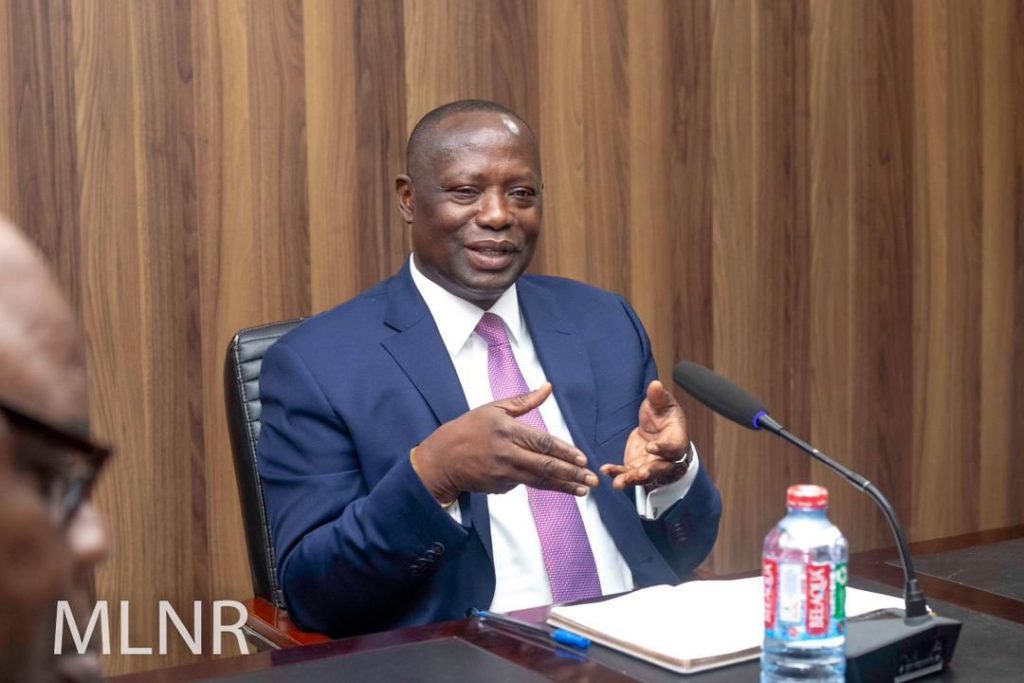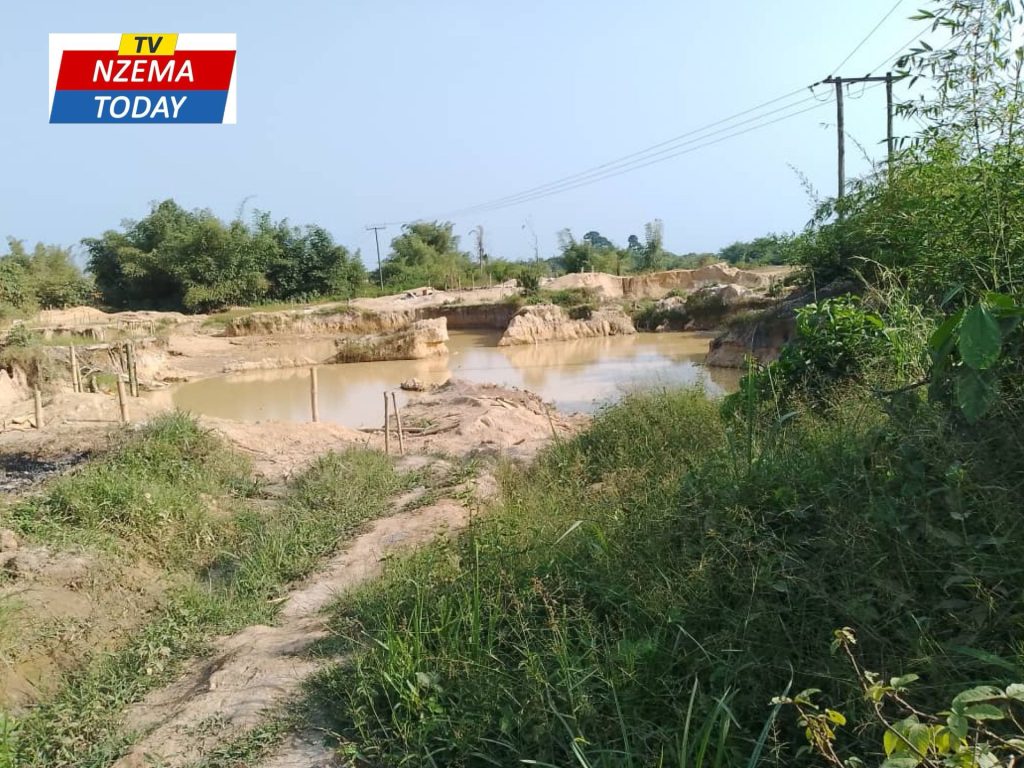In what could be described as war declared by the Minister for Lands And Natural Resources, Hon Emmanuel Armah-Kofi Buah, illegal miners have bolted from their sites with large tracts of degradable lands in parts of the Ellembelle District of the Western Region.

This follows an unannounced swoop by government’s anti-galamsey task force in the Ellembelle District as part of the nationwide fight to clamp down on galamsey activities to restore farmlands, water bodies and ecosystems.
The revelation came to light when our reporter visited parts of galamsey sites in Ellembelle after the exercise.
Places visited include Esiama, Nkroful, Teleku-Bokazo and Anwia.
Some of the indigenes who spoke to Nzema Today TV, said since the joint police-military exercise, the illegal mines have flown the mining sites.
Our reporter who took shots of the degradable lands,saw that the destruction and pollution of river bodies was massive.

Residents reported that illegal mining activities had persisted in the Ellembelle District for over eight years, with little intervention from the previous government to curb the menace.
As a result, major rivers such as the Subre, Broma, and Wowole—once vital sources of drinking water for generations—had become heavily polluted.
They lamented that since farming was the major occupation in the area, galamsey had posed a serious threat to their livelihoods.
Most of the indigenes expressed the hope that with a bold decision taken by the government and the security agencies, government will win the fight against galamsey to restore their farmlands and water bodies.
It will be recalled that the Minister for Lands And Natural Resources, Hon Emmanuel Armah-Kofi Buah recently embarked upon a tour to halt galamsey activities in parts of the country and ordered the security agencies to arrest illegal miners.
Following his directive, several illegal miners and their financial backers were arrested in the Western Region and subsequently detained in Sekondi.
Additionally, authorities confiscated excavators used in their operations.
By Kodwo Nyamekeh











